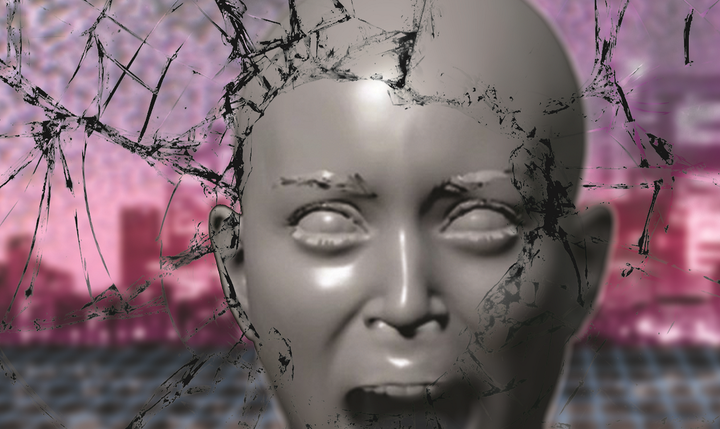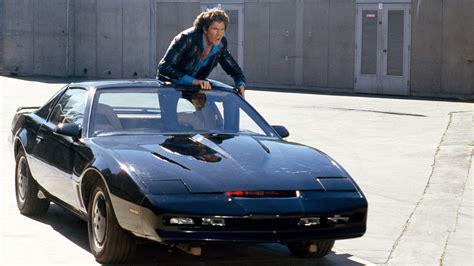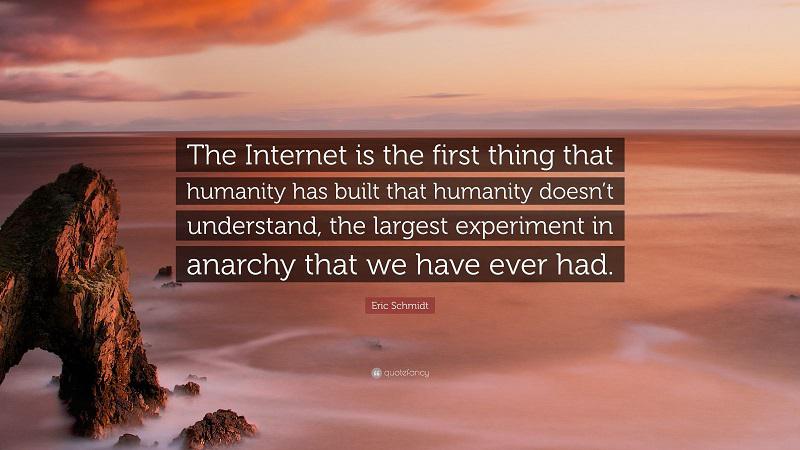

In this text we have looked at many different aspects of technology and tried to develop an immanent critique of various ways to look at technology and also technologies themselves. In this last part we are hoping to present our own conclusions through a critique of technology and society. Our perspectives are a work in progress, and we hope to get feedback. In particular, we are uncertain if we are reproducing technology optimism and technology pessimism in our text, as even though we reject these viewpoints we are perhaps unable to forge ahead with an analysis that avoids reproducing these views.
Cars

The car is a good example of technology in capitalism. Human movement is greater today than at any previous point in time, and humans travel longer on a daily basis than ever, primarily due to having to get to or from work and activities such as studying. This shift in human activity came along by urbanisation, industrialisation with mass Fordist production and necessitated control of oil and imperialist war, construction of roads and the entire "car society". Professor Alf Hornborg delivers a critique but on automation that we can extend to the car, he says that the idea of "saving time" through automation is to some degree a lie, there is no time saved for the children digging cobalt in the Congo, or the Bangladeshi women who spend 10-12 hours a day in the factories that produce our digital gadgets. Thus, we can ask how much time the car actually saves and for whom.
In a future society the car might not even be a strict necessity, and a communist future is not merely an Oprah Winfrey style vision of cars for all, but on the other hand we are not proposing a parochial vision where no-one leaves their home and where there is some return to an "organic wholeness" (in Donna Haraway's terms) with some mythic, essentialist past. Communism is a world which is neither captured entirely by accelerationism or primitivist essentialism and this is the point of our example with the car here. Some technology needs to be destroyed. Some needs to be spread far more than it already is. Some might need to be used occasionally. Communism is an entire shift in our ways of living with one another. Thus, imagine that cars might exist, but they might overwhelmingly be electrical, or they might just not be used all that much. They might be a fare riding structure, or a capacity for individual liberation. It's certain that we won't need a car society in communism, since we won't be forced to commute to work.
Materiality and Structure for the Future

In Communism, let's get rid of this stupid 'inspirational' aesthetic
The internet offers up a basis for a new communist vision: based on "the greatest experiment in anarchy that humankind has ever known", a world where we turn the bourgeois Big Data dictatorship upside down and instead put the power to reconfigure, hack and reshape the digital-material world in the hands of users. Thus, the internet is perhaps something we can start from in conceiving of a decentralized world from below. Obviously it is also a problematic entity filled with misogyny, hatred, etc. and we are not proposing a technology optimistic vision of the internet but rather suggesting that the decentralized network structure where reciprocal communities can be formed, reformed, or abandoned can be a new version of a "free association."
To use a simple example of logistics in capitalism: water is, in capitalism, extracted from Austria, bottled in plastic bottles and then transported by trucks to places like Sweden. This water has no different properties than that which comes out of the tap. Obviously, this will not be the case in communism. Again, this does not mean that we should develop an essentialist, romantic notion of building our own wells - the development of large-scale water architecture is a cornerstone of human progress - but this example showcases how technologies and their use are specific to the society we live in.
Logistical networks also form the basis for another piece of communist thinking. It's not so far-flung to imagine a world where rice production increases in southeast Asia as a response to small shifts in the weather which warns of a future drought in Mexico, which is then shipped and distributed a week ahead of the coming food emergency. The technology is already in place for this process as companies like Wal-Mart have created the basis for a global, real-time production and reproduction process. Through things such as container ships, drones, Big Data, open source applications and of course humans themselves we can end scarcity and need forever. This sort of system will require few if any bureaucrats, circumventing the need for a state, along the principle of "each according to their ability, to each according to their need." Of course, this is just an example of a possibility. Just like Beer's vision of cybernetics was woefully inadequate to even the wonders of modern day capitalism, so are we.
Nature and Cyborgs

As we have discussed previously a communist vision also means the development of a new set of relations to nature which by itself means the destruction of some logistical networks, the abolition of the contradiction between land and city, a radical change in food production and our entire relation to the natural world. Humans move to cities because they must. We become alienated from our ability to feed ourselves and to fully grasp and develop our entire relation to the material world around us. Communism means to rework those relationships, not in the sense of returning to a mythical past but in crafting a new future.
Patriarchal and capitalist worldviews share in their view of nature as a passive object which is made for exploitation. These views are also represented in parts of the left and can be traced for example in accelerationist thought. This is also a standpoint from which humans are viewed as separate from and superior to nature. Ironically, the same ideology often views humans and their societies as determined by "human nature". In it's most extreme cases this gives birth to far right lunacies about human supremacy over the world to the point of reckless environmental destruction even in the face of global catastrophy. Although we see the need to sometimes, for the sake of analysis, make distinctions between human and non-human nature, it is important to keep in mind that nature is a totality of which we are a part of and in which we intervene and transform. Non-human nature in this view is not a passive recipient of these human transformations but rather an active subject.
Through viewing nature in this fashion we can move towards a cyborg vision of feminism and communism, of the ability to transcend the binary gender system and destroy patriarchy once more. We can return to feminist visions from the 70's of the destruction of work, the liberation from gendered power by a multiplicity of ways of reshaping the body. In this we can make new kinships with animal, human and transhuman.
The End of Work

This logistical and technological process goes hand in hand with developments in automation. In this sense communism must mean the abolition of work. Marx himself already had this in mind in an unusually complicated but fascinating piece in the obscure "Fragment on Machines" text:
"The free development of individualities, and hence not the reduction of necessary labour time so as to posit surplus labour, but rather the general reduction of the necessary labour of society to a minimum, which then corresponds to the artistic, scientific etc. development of the individuals in the time set free, and with the means created, for all of them. Capital itself is the moving contradiction, [in] that it presses to reduce labour time to a minimum, while it posits labour time, on the other side, as sole measure and source of wealth. [..] Forces of production and social relations - two different sides of the development of the social individual - appear to capital as mere means, and are merely means for it to produce on its limited foundation. In fact, however, they are the material conditions to blow this foundation sky high. ‘Truly wealthy a nation, when the working day is 6 rather than 12 hours‘." - Karl Marx, Fragment on Machines
As Marx says the capitalist system itself constantly causes these ruptures and conflicts, but in doing so it creates the basis for "blowing the whole foundation sky high". Automation is accelerating at a rampant pace today, undermining capitalism itself. It forms the basis for a communist society.
Of course, this does not simply mean that we should automate everything. Many automated jobs or parts of jobs, such as autodialers for call center workers, are simply useless for a society that doesn't want to sell crap. It can form the basis for what Marx calls the full artistic and scientific development of the individual in the new free time that they have gained: cooking food, rearing children, making memes, reading books, making art or whatever it may be. Simply calling for a full automation of all things is an ideological position. Rather, we require destruction or reworking of specific technologies. Technology is not fettered by capitalism and needs to be unchained, we must rather understand that technologies are situated in specific contexts and this context today is capitalist and patriarchal.
Strategy, Revolution, Utopia

"Rather than assume the Olympian point of view and ask ourselves what we would do with given technologies if we were allowed to rearrange things as we wish from one end of the earth to the other, we need to start with a much more difficult question: how do revolutionary struggles beginning in the here and now find a way to meet their needs, survive, and grow, while producing communism? " - Bernes, Jasper, The Belly of the Revolution
To think about technology gives us the chance to look beyond the day to day struggles and towards the future. It means being able to reimagine communism as well as to prepare for the revolution. As Jasper Bernes argues in the quote above, we need to consider how to start off this process with the technologies we have. Some technologies are easier than others to appropriate: the bike allows the cunning activist a good chance to disappear off into the night without introducing the social need for imperial wars to control oil, a specific expert knowledge that reintroduces hierarchies or anything else. Others are far more complex and necessitate hierarchies and organization which threatens to reintroduce capitalist relations: the fighter plane is one such example.
To even think of the revolution requires us to think about what weapons do to social movements: the militarization of social struggles threatens to become a counterrevolution inside of the revolution when new hierarchies are imposed. This is particularly true of modern warfare with it's focus on aerial warfare (though this might be changing with the advent of cheap drones, something revolutionaries should investigate further).This is particularly troubling for our comrades in Rojava, who need these technologies to survive but we at the same time are profoundly aware of these historical issues with militarization.
We must also consider the revolution in other aspects:
"[T]he horizon of revolution in our time involves 'communization' of all resources and relations: that is, the immediate abolition of money and wages, of state power, and of administrative centralization, and the organization of social activity without these mediations on the basis of direct, personal, or immediate social relations."
Bernes continues: "[I]f most of what people needed to live were organized this way successfully, on a communist basis, communism would stabilize. And if it stabilized it would spread, as the existence of people meeting their own needs and thriving without the mediation of money, wages, or violent compulsion would be enormously destructive for capitalism and class society elsewhere. It would mean either the beginning of the end for class society or the moment at which class powers gathered their forces to extirpate the threat. Although the aspiration of communism is to be global and universal (if also full of endless internal variation) and to establish a situation in which everything belongs to everyone and no human has more of a claim on the necessaries of life than any other, it must begin somewhere. Previous generations of communist theorists have misunderstood the transition to communism as temporal in nature, passing through the intermediate stage of socialism, when it is in fact better thought of as spatial transition: the geographical spread of an immediately social communism that is contagious for the precise reason that it is fully realized." - Jasper Bernes, Belly of the Revolution
We believe that such a view of the revolution is the most realistic in the social media-suffused world of today and in light of how revolts have looked in the last ten years. Revolts have had a national character but soon spread beyond the limitations of the nation state. They must be immediately communizing in that they transcend things such as money, labour, borders, gender and so on.
The logistical networks that crisscross our world to supply us with food is another. If trucks stopped moving due to large-scale social disruption and counterrevolutionary activities then food would run out in Sweden in five days. The most hardened revolutionary will give pause when his or her children are dying of starvation. To be serious about being a revolutionary means to work to solve these issues to the best of our abilities before the fact (though we can never hope to be 100% ready, but it would be nice to avoid mass starvation to the extent that we can). There are also other technologies, such as nuclear power, which requires us to think seriously about how to manage during massive uprisings.
We would like to propose/dream of the creation of a revolutionary research and development project, a militant investigation into the practical capacities for struggle in the streets and in workplaces. The best example of this is the Hong Kong protestors who have developed amazing new strategies and tactics in facing the terror of the Chinese state, a state which is the perfect vision of the future totalitarian, dystopic surveillance State.. What innovations can we create, develop or circulate?
Lastly, it is essential for us to develop a vision of communism through the lens of technology. The old visions, from anarcho-syndicalism to stalinism, all rested upon a vision of the fordist factory. Today that factory is gone and is replaced by postfordism. We require a vision for this new class composition, and while Fully Automated Luxury Communism is the most popular one we believe that it is problematic. We need a cool slogan, a vision, a dream which takes into account ecological perspectives, an end to work, a world of post-scarcity, of feminism and antiracism beyond nations and states. As we all know, it's either this or barbarism.
Red Mirror